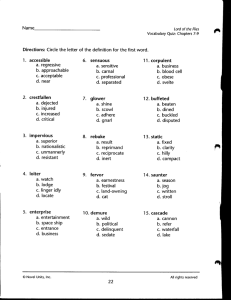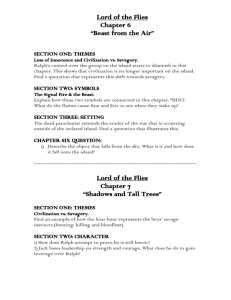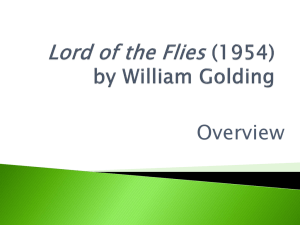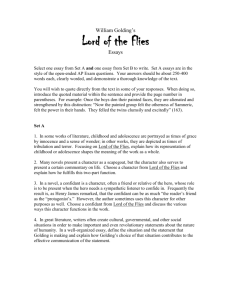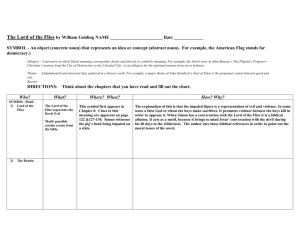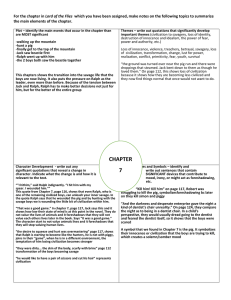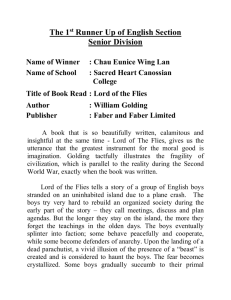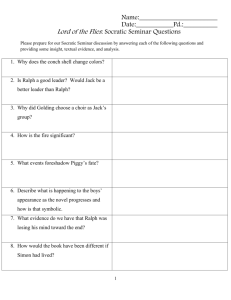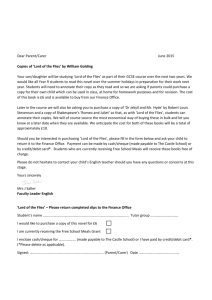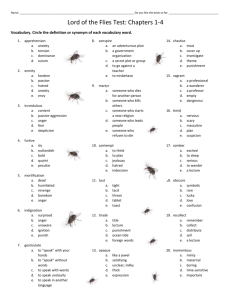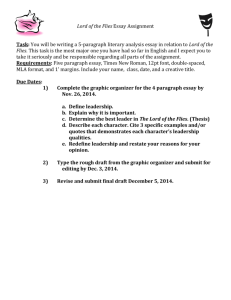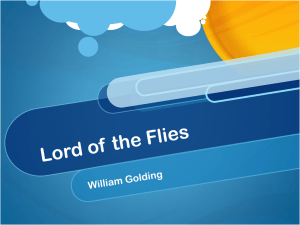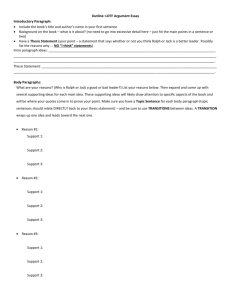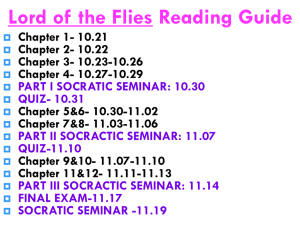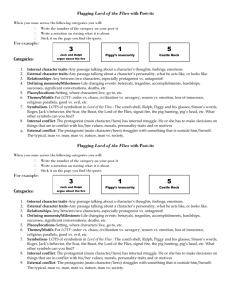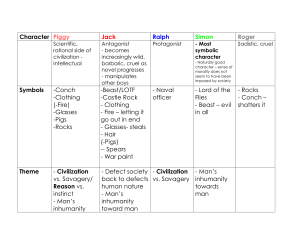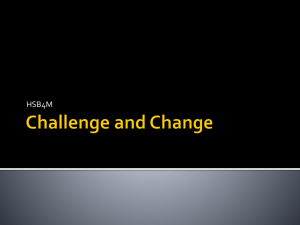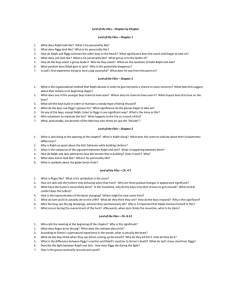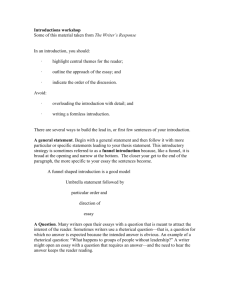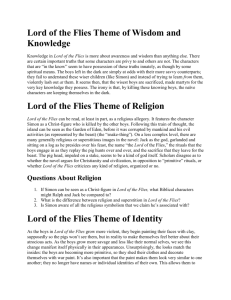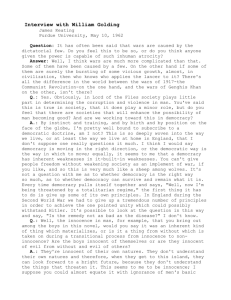Lord of the flies introduction
advertisement
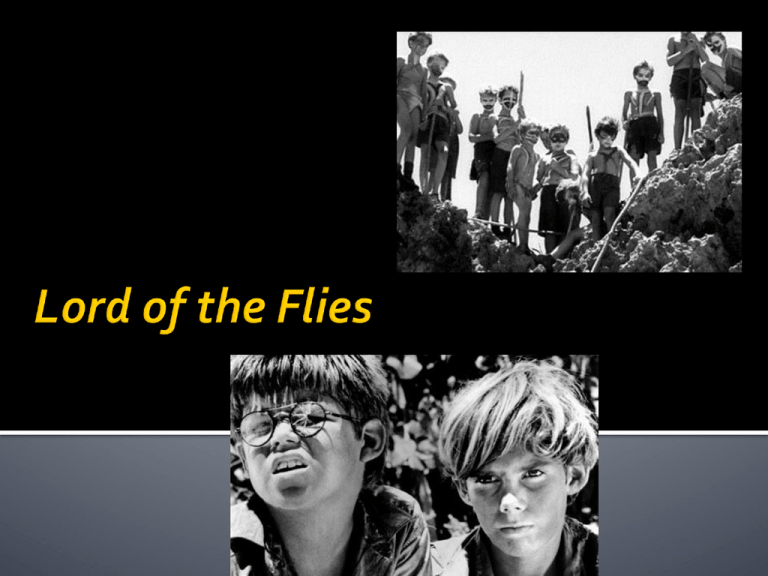
September 19, 1911—June 19, 1993 British novelist, poet, and playwright Won the Nobel Prize for Literature in 1983 Knighted in 1988 Joined the Royal Navy in 1940 Fought in the navy in WII Participated in D-Day invasion of Normandy WWII influenced his experiences and his writing Lord of the Flies: 1954, most famous Genre: fable, allegory, adventure story Blend of symbolic elements and an adventure that symbolize larger elements of human nature Characters and events represent larger aspects of society Reveals how evil resides in each of us Struggle between Jack and Ralph reveals opposing lifestyles and governing styles Title: Lord of the Flies Beelzebub: another name for the Devil Comes from the Greek word for “Lord of the Flies” Takes place during World War II A group of British boys are flown out of the country to protect them The plane crashes leaves them stranded on the island The boys are left to fend for themselves Create their own society and system for survival Utopia: perfect society Dystopia: often seem like a “utopian” society, but are really not Authors use this genre to critique the world in which they live Often create a sense of “doom” or failure within the society Golding uses it to display the breakdown of society and morality Lord of the Flies reveals the breakdown of civilization The boys descend into savagery, cruelty, and violence Primitive instincts overthrow rules, logic, and reason Ralph The elected leader Rational, clear-headed, the greatest good Piggy Social outcast who sides with Ralph Means well, but is picked on throughout Jack Leader of the choir boys Hunter, violent, rash, disregards rules In competition with Ralph Simon Stands for the child-like innocence of many boys Inquisitive, philosophical, kind-hearted Roger Violent, cruel, bully Society holds everyone together, and without rules and order the basic concept of right and wrong will be lost Evil is within all of us. All it takes is the right situation for our own “savagery” to emerge. Civilization/society “reigns in” those tendencies Moral ambiguity and fragility of civilization Fear and the desire for acceptance are powerful motivators People will abuse power when it’s not earned or checked. Do individuals control groups, or do groups control individuals? Are humans inherently good or evil? What would the world be like without a basic social contract? What are the essential tasks that you would perform if you were stranded on an island? What does it mean to be a leader? How do you keep hope alive in the face of despair? What does it mean “Without contraries there would be no progression”? What do you fear most and how does that impact your actions? Decorous - in keeping with good taste and propriety; polite and restrained. Hiatus - a pause or gap in a sequence, series, or process. Enmity - the state or feeling of being actively opposed or hostile to someone or something. Eccentric - of a person or their behavior) unconventional and slightly strange. Furtive - attempting to avoid notice or attention, typically because of guilt or a belief that discovery would lead to trouble; secretive.
